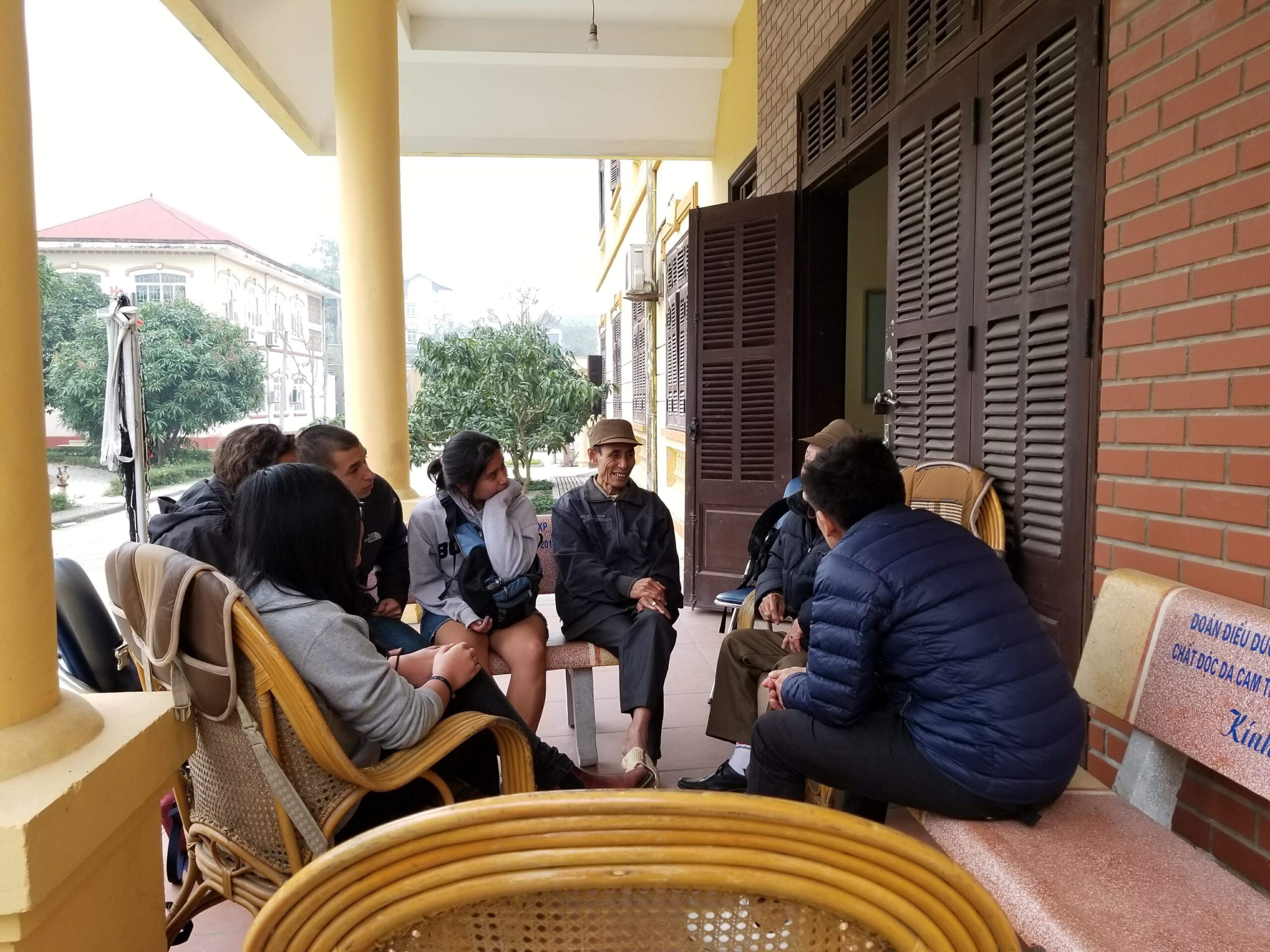Students grapple with ramifications of Vietnam War on Alternative Winter Break
January 26, 2018
 Courtesy of Chareeda Rustanavibul
Courtesy of Chareeda RustanavibulExploring history, healthcare and humanitarianism in the legacy of the Vietnam War, 13 Bowdoin students embarked on an Alternative Winter Break (AWB) trip to a rehabilitation center for veterans and children who were affected by the U.S.-released herbicide known as Agent Orange.
Led by seniors Bao Ma and Quyen Ha with Assistant Dean of Students Khoa Khuong, the group spent 10 days learning and performing service work at the Friendship Village in Hanoi.
The Joseph McKeen Center for the Common Good has customarily organized AWB trips exclusively in Maine, but Ma had envisioned a trip to Southeast Asia for two years. She was prompted by the absence of Vietnamese history within Bowdoin’s western-privileging academics. She sought a platform to introduce Vietnamese culture to the community, as well as bring to light the danger of historical amnesia and the ramifications of war.
“Quyen and I chose this topic because we wanted to do a service on a topic that is so forgotten and kind of overlooked,” said Ma. “For the people in Vietnam who are veterans and civilians who live in the area that happened to be affected by Agent Orange, it’s a daily life struggle, and living here in Maine you don’t see that.”
Agent Orange causes serious neurological disorders, cancer and birth defects. During the 1960s, the U.S. military sprayed millions of gallons on to Vietnamese vegetation, according to the U.S. Department of Veterans Affairs.
Detailed and laborious planning went into the trip’s preparatory stage. The student leaders worked closely with Andrew Lardie, associate director of the McKeen Center, as well as Vietnamese organization Center for Sustainable Development Studies (CSDS). Participants engaged in classes on Vietnamese culture and history prior to the trip, and were reminded to avoid looking down upon the residents of Friendship Village as victims.
“We wanted to be aware of that and not having a Savior Complex … also we wanted to be aware of not having an Orientalist view of Vietnam, in the stories that we tell and what pictures we take and what pictures we share on Instagram,” Emma Stevens ’18 said.
During volunteering, participants remarked on how well-taken-care-of and self-sufficient the residents were.
“These kids were very, very happy. They didn’t need us to be over there at all. I felt like it was much more of a learning experience for us than for them,” said Chareeda Rustanavibul ’18.
Despite some initial anxieties surrounding the language barrier and cultural differences, including navigating the infamously insane traffic with Khuong’s slogan ‘no sudden movements,’ students quickly immersed themselves in the community.
“I think finding moments when we didn’t depend on language, when connection transcended mere language was really key… there’s dance involved, we played games, and we played sports with them, we played outside. When you’re able to do that, you’re able to forge a relationship with kids,” said Elly Veloria ’20.
As students call for greater diversity in scholarly accounts of the Vietnam War, this AWB trip was intended to not only practice service, but also inspire a different, first-hand approach to studying history.
“I think nothing does service to the experience of people affected by war like actually hearing the stories and through their words. A textbook could never tell you all the individual stories of what losses people have suffered,” said Veloria.
Stevens reflected her experience as a more introspective level of learning, one that pushed her to reflect on the multiplicity of perspectives in history.
“My education was very western-focused, so it was interesting to hear the other side when you’ve heard one way your entire life … I really enjoyed working with the children, however knowing that the health struggles that they face are results of … U.S. interaction was difficult,” she said.
Stevens added, “I think the thing that was most shocking to me was talking to the Vietnam war veterans themselves … someone in my group asked ‘Do you hate Americans’ and you know to hear their response, them saying, ‘No, but we think the reparations of war should be paid.’”
When asked whether she believes the trip will take place again in the future, Ma expressed optimism about a ripple effect that would continuously spark more intellectual and cultural inquiries.
“The fact that Bowdoin will want to continue to fund these kind of trips for the future, to educate the student body, to bring more diversity into the currently scholarly academic topics here at Bowdoin [matters a lot],” Ma said.

Comments
Before submitting a comment, please review our comment policy. Some key points from the policy: